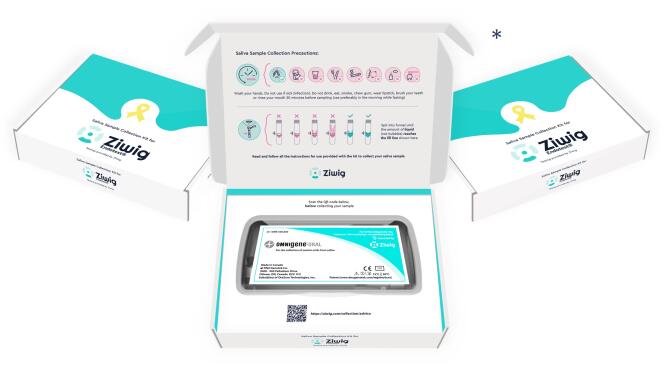


A chronic hormone-dependent inflammatory disease, endometriosis affects one in 10 women of childbearing age, i.e. around two million people in France. It is characterized by intense pelvic pain. As the current average diagnosis takes up to 10 years, research has focused on early diagnosis.
A quick, reliable and non-invasive test would constitute a small revolution. Ziwig, a startup from Lyon specializing in artificial intelligence (AI), has developed a saliva test with the help of medical experts from three university hospitals in France – Hôpital Tenon in Paris, Lyon-Sud and Angers.
The examination is believed to diagnose the disease within just a few days after a sample is taken. Although it can be carried out directly by the patient, it requires high-throughput sequencing and the use of an algorithm designed by AI in a medical biology laboratory.
This test is recommended as a third step, after clinical and imaging (MRI) examinations, but prior to diagnostic laparoscopy for women with painful symptoms but normal imaging, as the latter invasive examination is not without risks. It may even prove unnecessary when no lesions characteristic of the disease are found.
With clinical results showing good diagnostic performance (98% reliability), the French National Authority for Health (HAS) issued its long-awaited opinion on the reimbursement of this test on Monday, January 8. The authority had taken it upon itself to assess the test's clinical efficacy and utility before deciding whether or not to reimburse it.
While the authority recognizes the innovative, non-invasive nature of the new test and its good diagnostic performance, it considers that its clinical usefulness has "not yet been demonstrated." In other words, it still lacks data, particularly concerning the target population.
The HAS also wants to avoid widespread deployment, which could lead to inappropriate use of a test perceived as "simple and quick," especially in light of its high cost of around €800.
Against this backdrop, the HAS is currently proposing access to Endotest as part of the "innovation package." In practical terms, this means that patients could benefit from controlled access to this test, with exceptional reimbursement subject to the completion of a study of its effectiveness. "This would make it possible to obtain data that is still missing, such as the impact of the test on patient care, an estimate of the volume of prescriptions for the test in the target population, and acceptance by patients."
You have 5% of this article left to read. The rest is for subscribers only.
